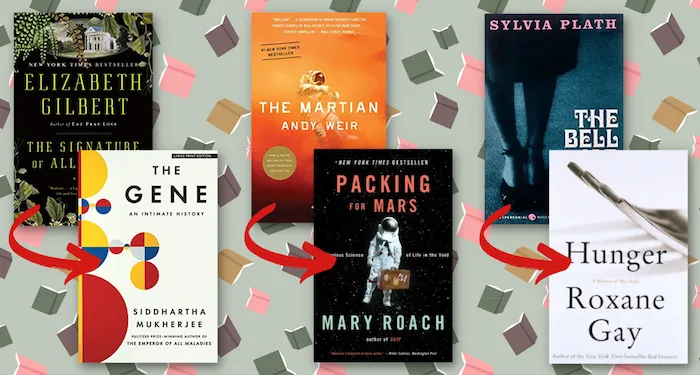
If You Loved That Novel, Try This Nonfiction Book
My affinity for nonfiction has only been increasing over the years, as I become better at scouting out well written books about topics I find interesting. Often my fiction reading leads me to them. I am intrigued by the historical, cultural, or political context of a novel, and out of the internet rabbit holes this sends me down emerge new nonfiction books for my TBR. Sometimes I also find myself reading a novel or a short story and marveling at how uncannily well matched it seems in tone or feel to a nonfiction book I happened to have read recently.
The point I am trying to make here is that there are some fiction and nonfiction book pairs that go really well together — even with apparently different approaches and even subject matter. If you have enjoyed one, chances are that you will find the other a satisfying reading experience as well. I’ve compile a list of nonfiction read-alikes for nine well-loved fiction titles from across genres. I hope you find one of your favorites on it, and happy reading!
If you loved The Signature of All Things by Elizabeth Gilbert, try:
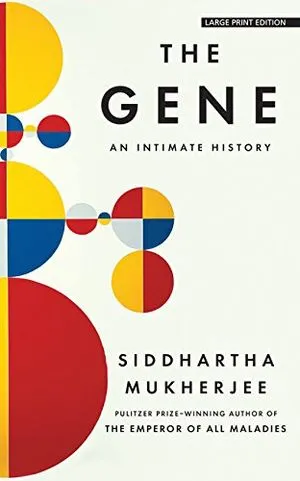
The Gene: An Intimate History by Siddhartha Mukherjee
The Signature of All Things is one of my favorite books of all time. It focuses on Alma, a middle aged botanist in the 19th century who studies moss and makes a profound discovery that could have potentially altered the course of science and changed humanity’s perception of itself. The book provokes its readers to think of all the women scientists that could have been.
In Siddhartha Mukherjee’s immensely readable history of the evolution of our understanding of the gene, we come across women scientists that are (or were), from Nettie Stevens and Rosalind Franklin to Jennifer Doudna. This book will show you where Alma’s discovery would have fit in. If you enjoyed a book about the adventures of a curious moss scientist, you will love this saga of the remarkable people, who, through their unwavering curiosity and astute analyses, introduced to mankind the fascinating world of genetics.
If you loved The Martian by Andy Weir, try:
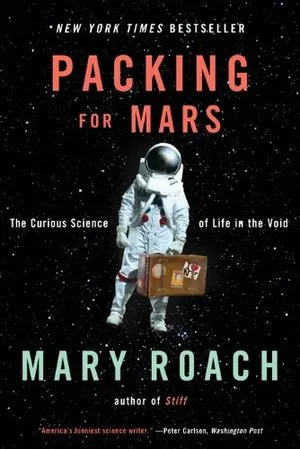
Packing for Mars: The Curious Science of Life in the Void by Mary Roach
Did you love the surprisingly funny survival novel about the scientist who gets stranded on Mars? Read this book by Mary Roach, one of the funniest, most popular nonfiction writers of America. It will answer all the weird questions that you may have had about actual everyday life in actual space.
If you loved Remarkable Creatures by Tracey Chevalier, try:
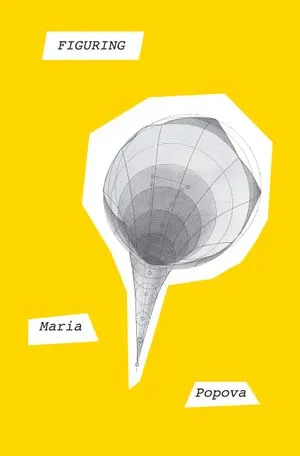
Figuring by Maria Popova
Tracey Chevalier’s Remarkable Creatures is a quiet, atmospheric novel about the friendship between Mary Anning and Elizabeth Philpot, and their shared passion for fossil hunting. Figuring by Maria Popova has a similar tone, and celebrates, through the lives of several scientists, artists, and writers, the human interactions and relationships that guide us in our search for meaning — and end up shaping our understanding of the world.
If you loved The Joy Luck Club by Amy Tan, try:
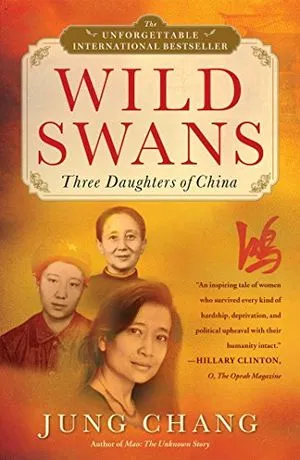
Wild Swans: Three Daughters of China by Jung Chang
If you read Amy Tan’s book about the relationships between Chinese American daughters and their immigrant mothers, and were intrigued by the lived experiences of women in the context of modern Chinese history, look no farther than Wild Swans. It tells the stories of three generations of women in the author’s own family, living their lives in the rapidly changing social and political backdrop of 20th century China.
If you loved Midnight’s Children by Salman Rushdie, try:
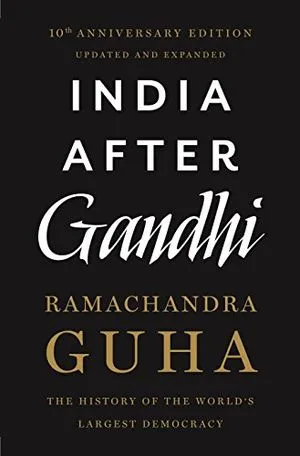
India After Gandhi by Ramachandra Guha
Midnight’s Children is Salman Rushdie’s epic, magical realist take on post-independence history of India. Let Ramachandra Guha give you the almost equally engaging historical context. This well-written book emphasizes the progressive, liberal roots of the world’s largest democracy, and provides an excellent overview of its journey since independence. It is quite a tome — but if you enjoyed Midnight’s Children, you should do just fine.
If you loved The Once and Future Witches by Alix E. Harow, try:
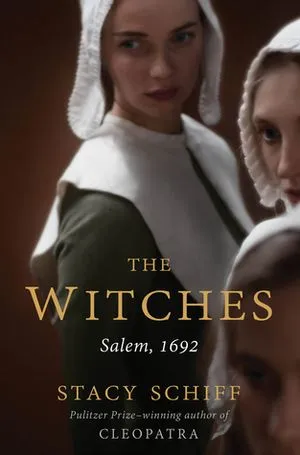
The Witches By Stacy Schiff
I tore through The Once And Future Witches, fascinated by the dark and oppressive setting, inspired by the everyday acts of magical rebellion, and engrossed by a killer plot. At the heart of the story is a war cry against patriarchy and prejudice, and, like many other witchy reads, it is set in Salem. For an incredibly detailed historical account of the trials that have become so ubiquitous in popular culture, read The Witches by Stacy Schiff. In this book, Schiff sets out to examine what drove the mass hysteria that gripped Salem and ultimately led to the death of 19 women and men. This book would also be a good companion read for other witchy books like The Year of Witching by Alexis Henderson.
If you loved The Bell Jar by Sylvia Plath, try:
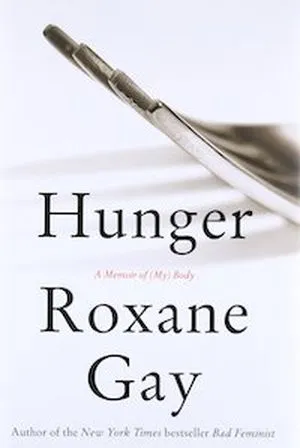
Hunger: A Memoir of (My) Body by Roxane Gay
The Bell Jar‘s disconcertingly intimate portrayal of an ambitious woman struggling with her depression was a revelation for me — when I read it for the first time, I had never expected to see the worst of my inner turmoil to be represented so accurately in writing. But Esther Greenwood’s white, conventionally beautiful, sometimes outright racist perspective had gaps that I identified only when Hunger by Roxane Gay filled them, with its unflinchingly honest portrayal of a creative woman’s struggle to contain her mind and body within socially sanctioned boundaries.
If you loved The Guernsey Literary and Potato Peel Pie Society by Mary Ann Shaffer and Annie Barrows, try:
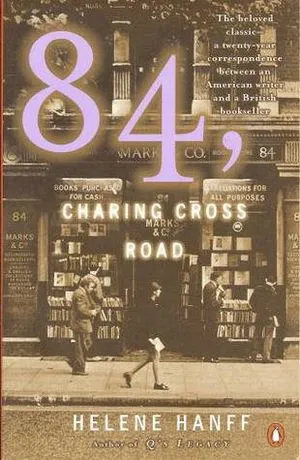
84, Charing Cross Road by Helene Hanff
If you enjoyed the much loved epistolary novel about the friendship between a writer from London and members of a wartime book club in the island of Guernsey, you should pick up this charming book about a real life friendship based in the love for books. It collects Helene Hanff’s correspondence with Frank Doel, a used book dealer in London. Readers watch their friendship grow and evolve through two decades’ worth of letters.
If you loved The Count of Monte Cristo by Alexandre Dumas, try:
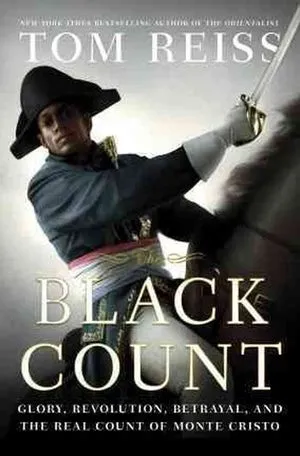
The Black Count by Tom Reiss
If you find yourself returning time and again to the swashbuckling adventures of the Count of Monte Cristo, let The Black Count introduce you to the man who inspired the classic. The book is about Alex Dumas, father of writer Alexandre Dumas — the son of a formerly enslaved person who rose through the ranks of the French army.
Want more nonfiction reading recommendations? Check out our nonfiction archives. For more books that go well together, read this post by Anne Mai Yee Jansen.
















